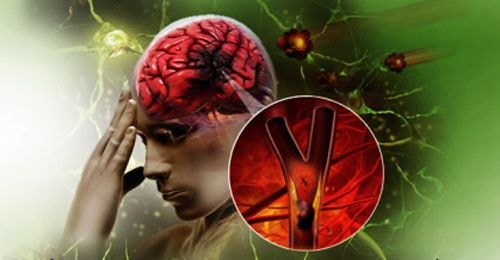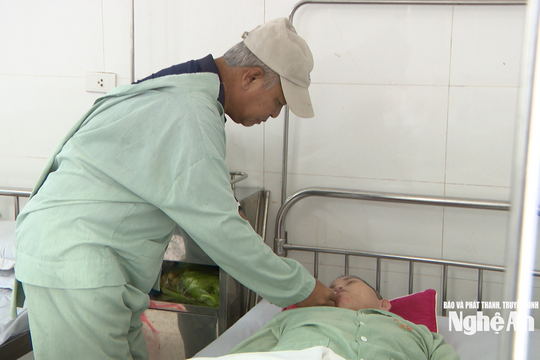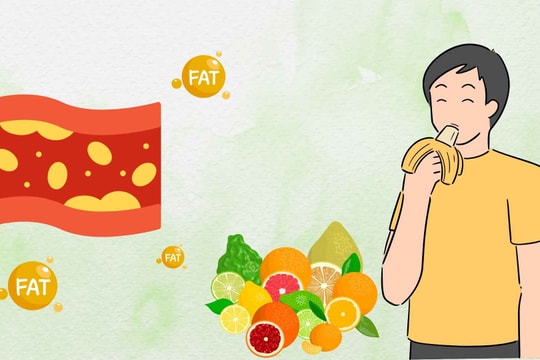5 factors that threaten stroke in young people
Stroke (also known as cerebrovascular accident) is becoming increasingly younger as hospitals are receiving many new cases at the age of 18 - 30.
Mr. Hoang, 30 years old in Hoa Binh, was just taken to the emergency room at Military Hospital 108 (Hanoi) in a state of severe dizziness and weakness on one side of his body. After emergency examination, the doctor diagnosed him with a stroke. His family was very surprised because they thought that at his young age, a stroke would be very unlikely.
Symptoms often appear unexpectedly, but according to experts, stroke is the result of silent, long-standing factors that patients, especially young people, often ignore and do not expect.
According to Professor Nguyen Van Thong, Chairman of the Northern Stroke Prevention Association, Head of the Department of Neurology, 108 Clinical Medicine Research Institute, stroke often occurs suddenly, causing patients to fall in the bathroom, on the street, at work, at parties, even while playing sports... The disease occurs in anyone - the elderly, the young, urban to rural, businessmen, office workers or farmers...
Recent statistics from the World Stroke Organization show that one in six people are at risk of having a stroke. In Vietnam, there are about 200,000 cases each year, half of which are fatal. The rate in young and middle-aged people is increasing rapidly and accounts for about one-third of all stroke cases. According to hospital statistics, the rate of stroke in young people increases by an average of about 2% each year, with the number of men four times higher than women.
Professor Thong analyzed that the increase in strokes in young people is due to risk factors related to modern lifestyles and chronic diseases that have continuously promoted and initiated the progression to stroke more and more closely. According to Professor Thong, the basic causes leading to stroke include:
Insomnia:In the past, insomnia was common in people over 60 years old, but now the number of patients under 40 years old is increasing under the pressure of work, economy, family...
Insomnia lasting more than a month with a frequency of three times a week becomes chronic, very difficult to treat and seriously affects health through physical diseases such as high blood pressure, obesity, dyslipidemia, atherosclerosis... these are all high risk factors for stroke.
According to scientists at the Icahn School of Medicine (USA), people who sleep less than 5 hours per night have an 83% higher risk of stroke than people who sleep enough (7-8 hours).
 |
| Brain nerve cells and blood vessels are damaged by free radical attack. |
Frequent stress:This is considered an inevitable consequence of modern life and is a factor that is increasingly emphasized in promoting many dangerous medical conditions, especially stroke. Recently, a study published in the medical journal The Lancet (UK) showed that high pressure and working more than 55 hours per week increases the risk of stroke by 1/3.
Sedentary lifestyle, alcohol, tobacco and stimulant abuse:Being caught up in work, life and other concerns is the reason why many young people forget to exercise. Recently, the Stroke journal of the American Heart Association announced that people who do not exercise have a 20% higher risk of stroke than those who exercise at least 4 times a week.
In addition, negative lifestyle influences such as alcohol abuse, tobacco, and stimulants increase blood pressure, central nervous system complications, and create the premise for atherosclerosis, which can easily cause ischemia and stroke. Notably, atherosclerosis will appear very early before the continuous impacts of lifestyle.
Metabolic syndrome, chronic disease tends to be younger: According to a study, the rate of patients with Metabolic Syndrome who have a stroke is 62%. This risk will increase many times if there is a synergistic effect from medical conditions such as obesity that increases insulin resistance, Type 2 diabetes and high blood pressure... which promote the formation and development of atherosclerotic plaques in the arteries causing cerebral ischemia.
Notably, diseases such as high blood pressure, obesity, dyslipidemia, diabetes, atherosclerosis, etc. are tending to be younger due to the negative impact of lifestyle and unbalanced nutrition in young people.
 |
| Not just a disease of the elderly, stroke is increasingly threatening young people. |
Subjective psychology, thinking that stroke only occurs in the elderly:Youth is often considered the most energetic and disease-free period. This can easily lead to complacency, lack of prevention, early screening, and possible ignoring of stroke symptoms for timely emergency care. Meanwhile, young people, even in their 20s and 30s, are not immune to stroke because in reality this disease spares no one. According to hospital statistics, the rate of stroke in young people is increasing, averaging about 2% per year, with the number of men being 4 times higher than that of women.
Before the onset of stroke, there is a silent progression with risks. Through in-depth research at the molecular biological level, scientists have discovered that major risks such as atherosclerosis, cerebral ischemia... all have important origins from the loss of control of free radicals generated under the influence of lifestyle factors such as insomnia, stress... and the body's continuous metabolism.
Free radicals attack and damage the vascular endothelium, creating favorable conditions for the appearance of atherosclerotic plaques, causing the lumen of the blood vessels to narrow, blood flow to be difficult, causing cerebral ischemia. When the atherosclerotic plaques become thicker and thicker, they break off and combine with other factors to form blood clots that can get stuck in many locations in the cerebral blood vessels, causing blockages, or even ruptures, leading to strokes.
In addition to nutritional supplements, experts recommend having a reasonable work plan, avoiding insomnia, tension, and stress; maintaining a reasonable diet (limiting fat, sugar, salt; eating lots of vegetables, tubers, fruits), exercising regularly (walking, jogging, cycling... 30 - 60 minutes a day and 4 - 5 times a week); at the same time, limiting alcohol, not smoking... to protect and improve respiratory health, cardiovascular health and overall health to minimize the risk of stroke.
According to Alobacsi.vn
| RELATED NEWS |
|---|


.jpg)
-6c936385358262921c0884226b06c05a.jpg)

.jpeg)


